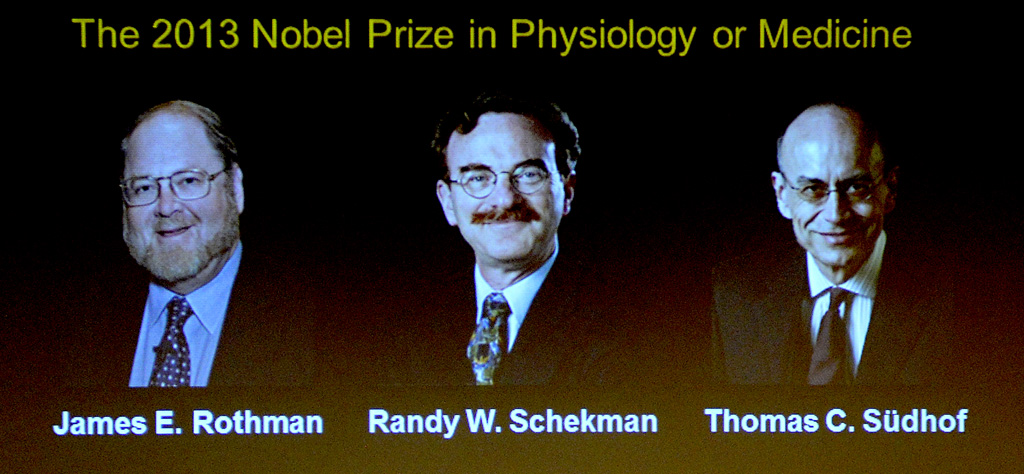Nobel prize for medicine: unpacking the ‘shipping container’ of biology
If there was any suggestion that the Nobel prizes were growing biased towards fashionable or glamorous causes, the 2013 award for medicine and physics will silence the critics.
It has gone to three men who shed light on a system so complex and obscure few people even consider its existence.
Even the discoverers themselves barely expected to come to the attention of the the men from Stockholm.
“My first reaction was, ‘oh, my god!’,” said Professor Randy Schekman, of the University of California Berkeley. “That was also my second reaction.”
But the work of Schekman, along with James Rothman, of Yale University and German-born Thomas Südhof of Stanford University is so fundamental to biology that no one will quibble over their place in the pantheon of scientific greats.
They were the first to start to describe the complex delivery system within cells in our bodies that underpin nearly every biological function you can think of from digesting your food to feeling love for your partner.
 A slide showing work by James Rothman.
A slide showing work by James Rothman.
Regardless of the function of a cell, whether it produces an essential hormone like insulin, or stores memories like a brain cell, the cells must move chemical messages around.
They do this by enveloping the message (say insulin, or in the brain a neurotransmitter) in a tiny fatty globule called a vesicle.
The vesicle is like the universal shipping container of biology. Rothman, Schekman and Südhof explained how they are packed, addressed and then delivered.
In the 1970s Schekman showed that by tweaking various genes in yeast that their internal transport system would shut down resulting in “traffic-jams” of vesicles. Then Rothman, unpicked the process of membrane trafficking – how vesicles dock with their intended recipient my means of a kind of molecular zip.
 A slide showing work by Randy Shekman.
A slide showing work by Randy Shekman.
Later on Südhof showed how nerve cells respond to an electrochemical signal to produce and release vesicles filled with neurotransmitters.
The cell’s transport system is implicated in the build-up of harmful “plaques” in the brains of Alzheimers’ patients – and this is now an active area of research in Prof Schekman’s lab.
It may also help explain factors contributing to hormone-dependent diseases like diabetes.
Follow Tom Clarke on Twitter.
